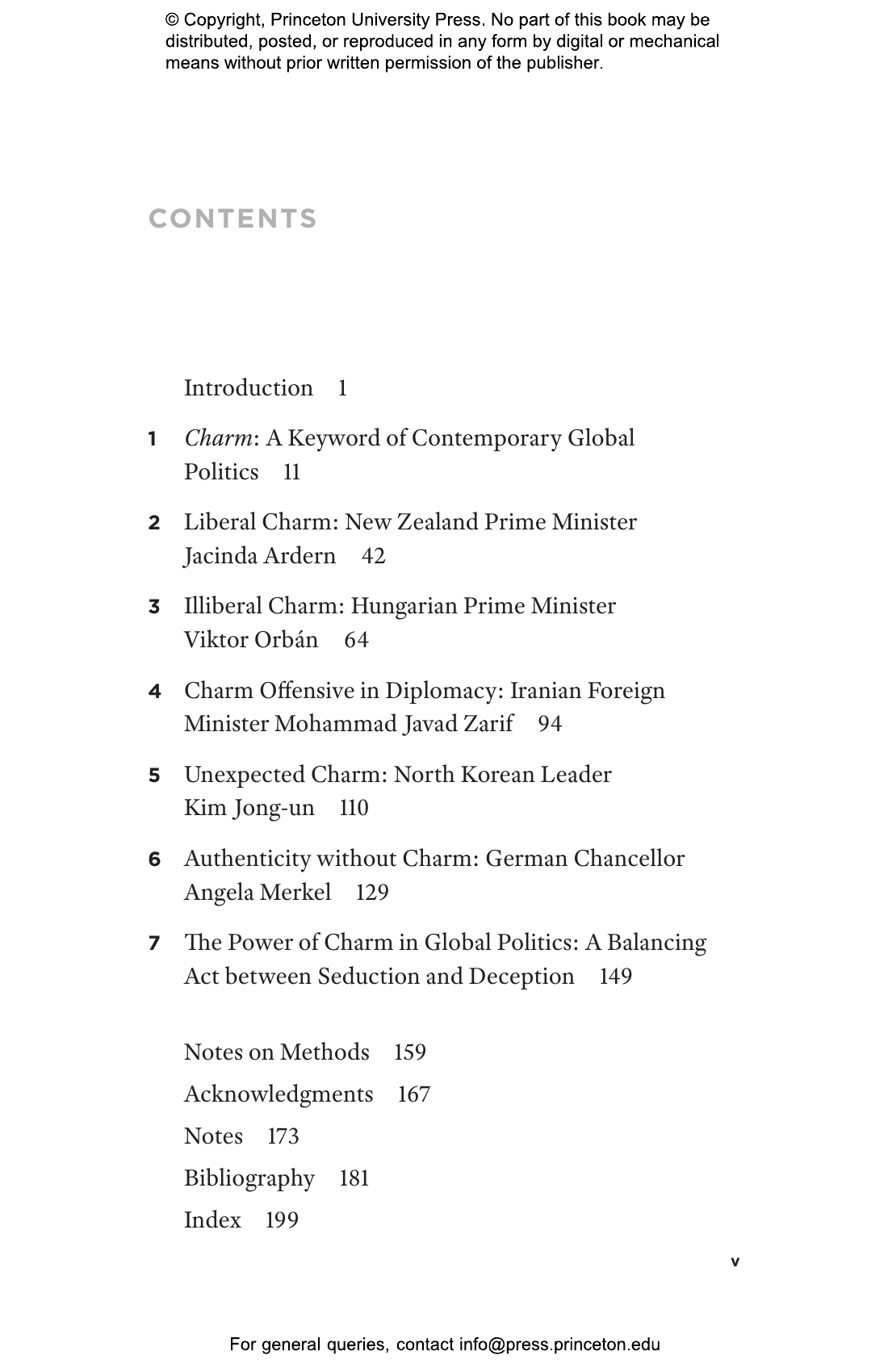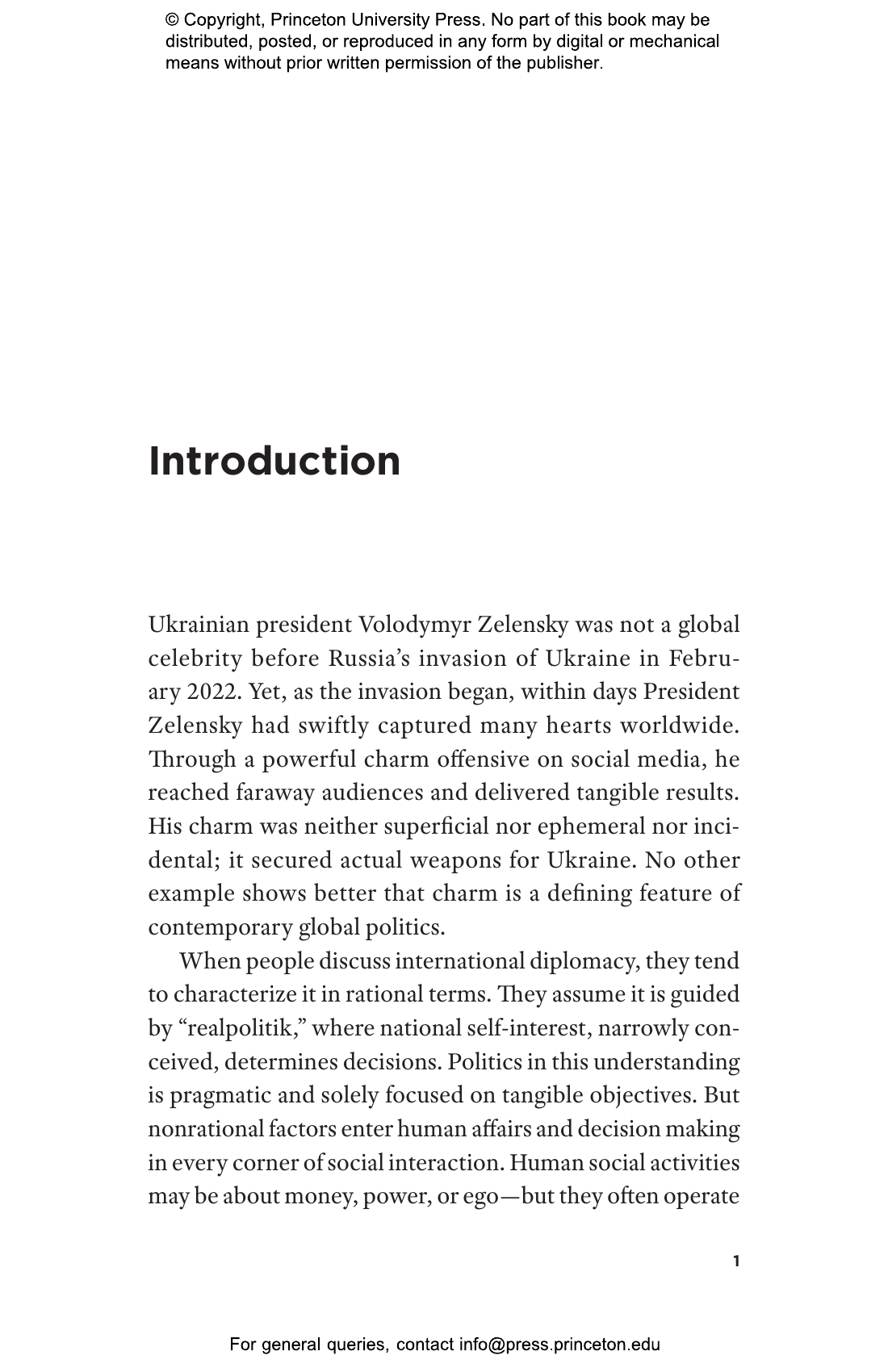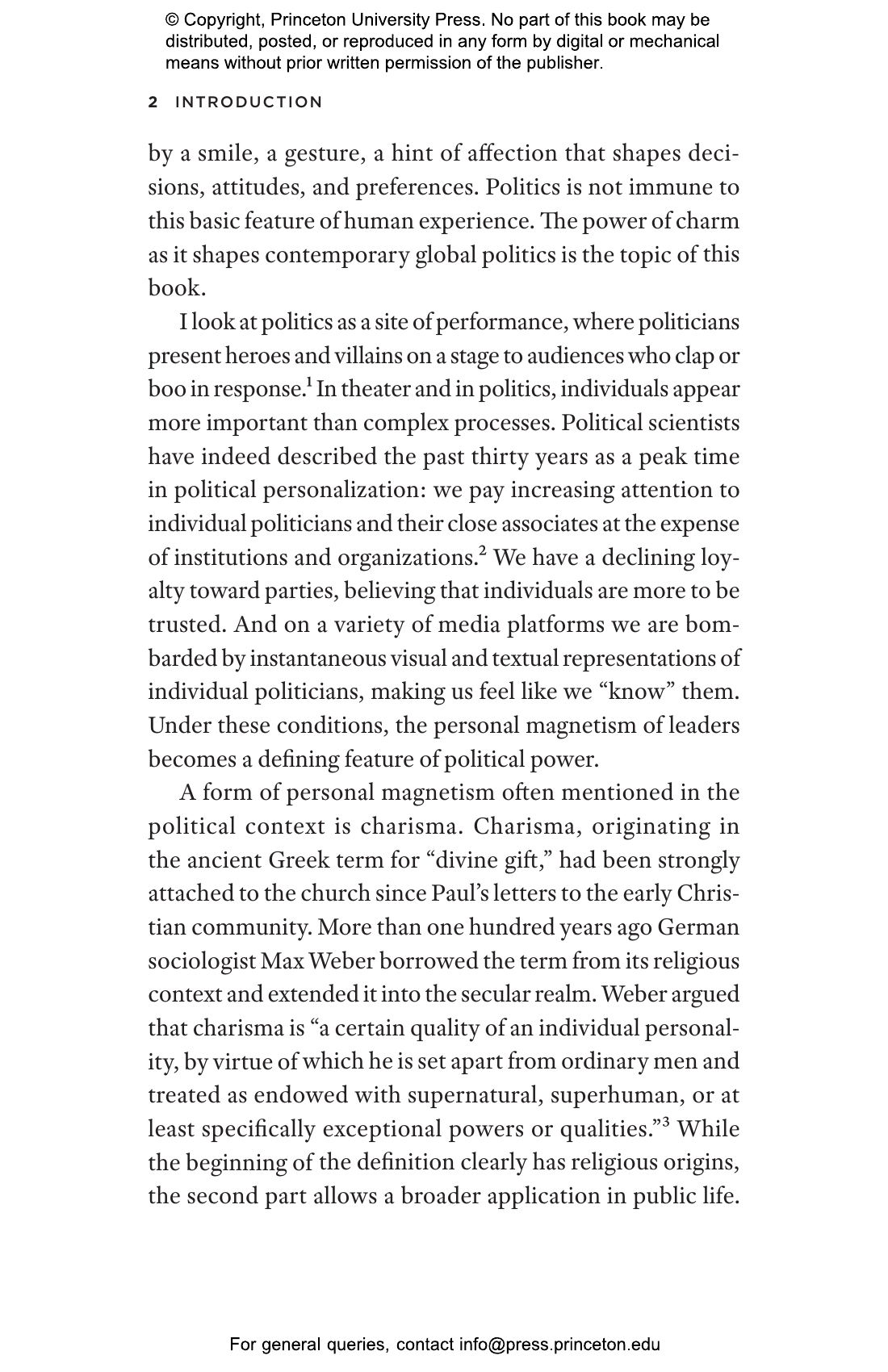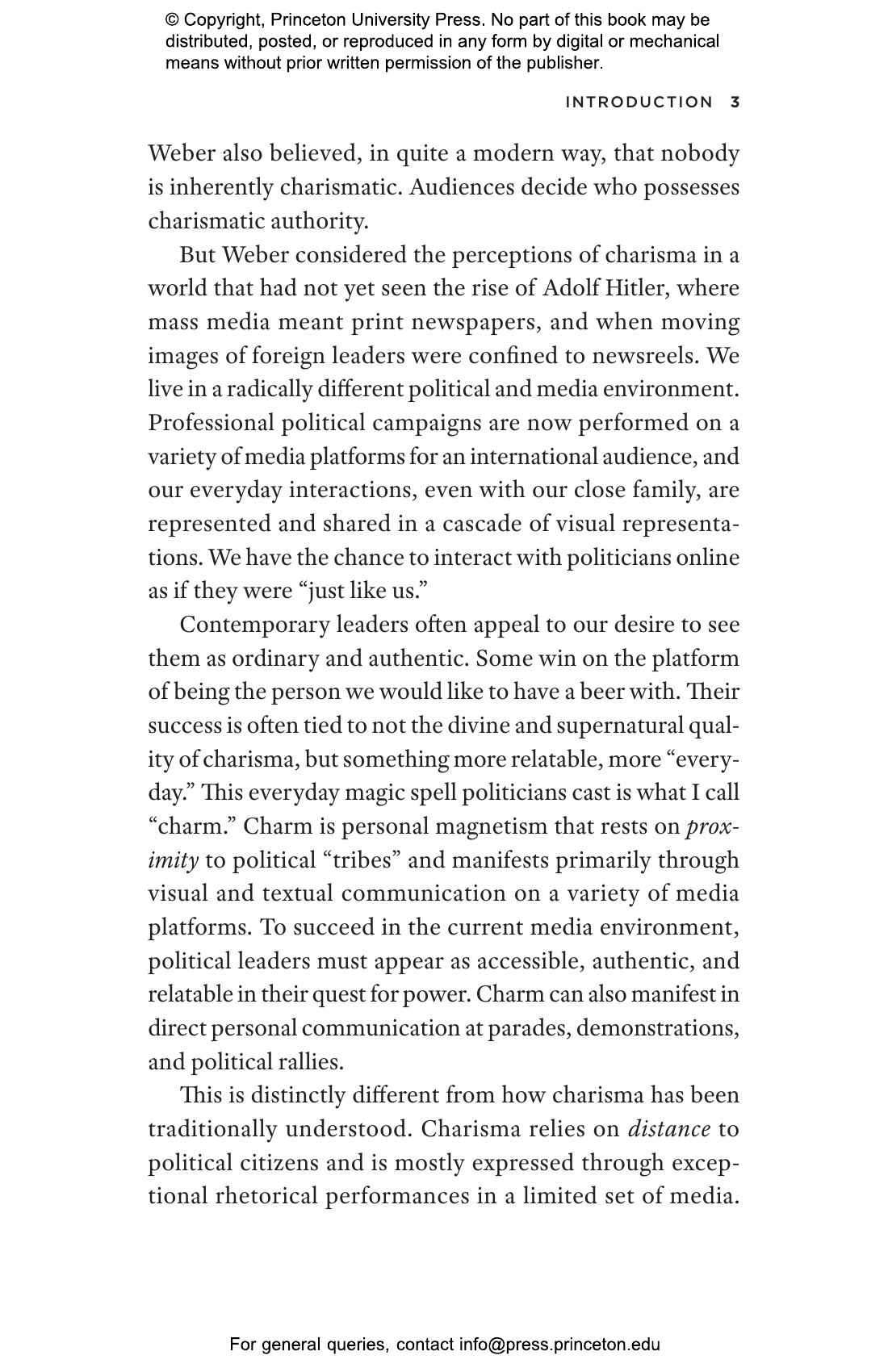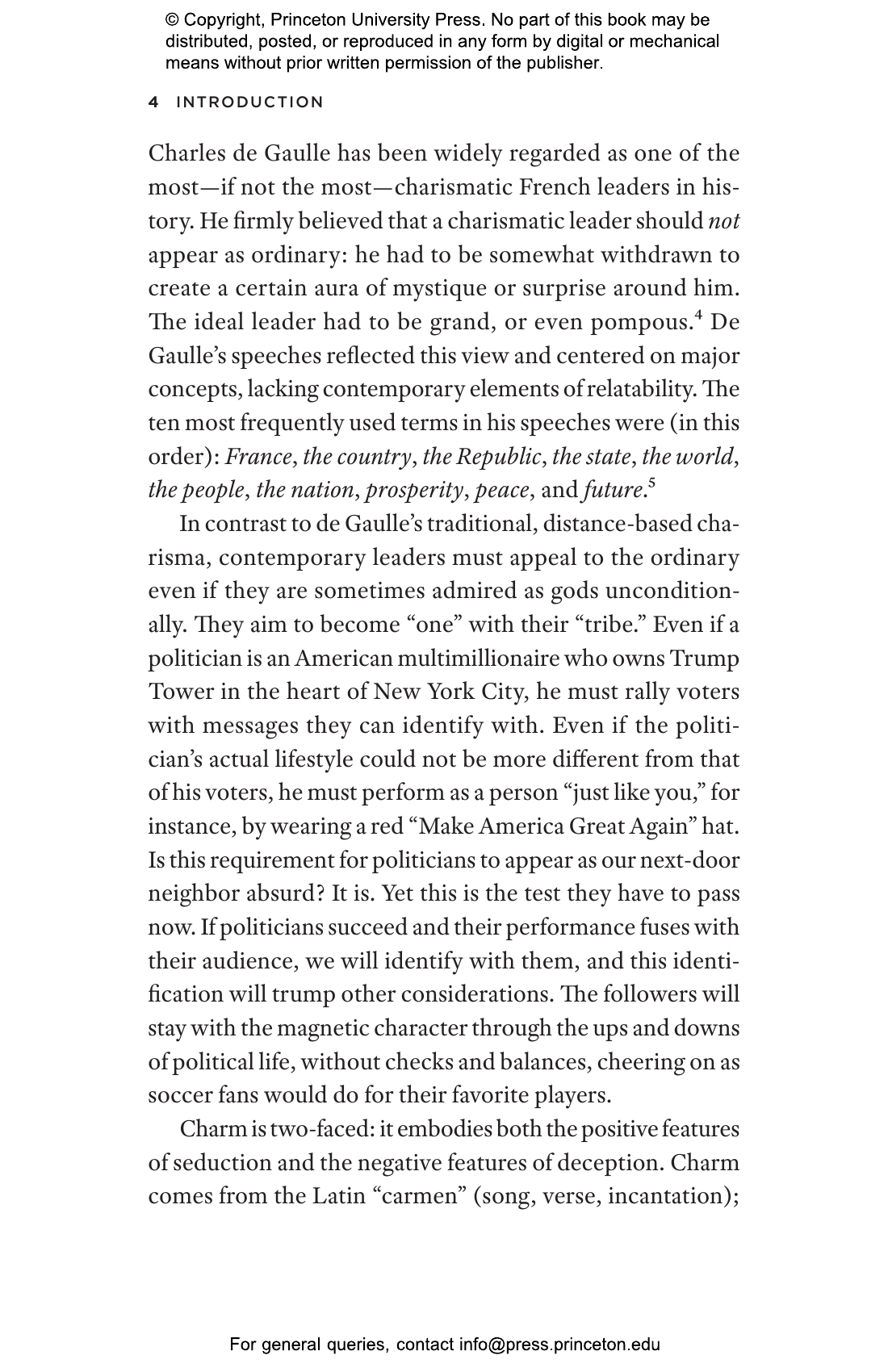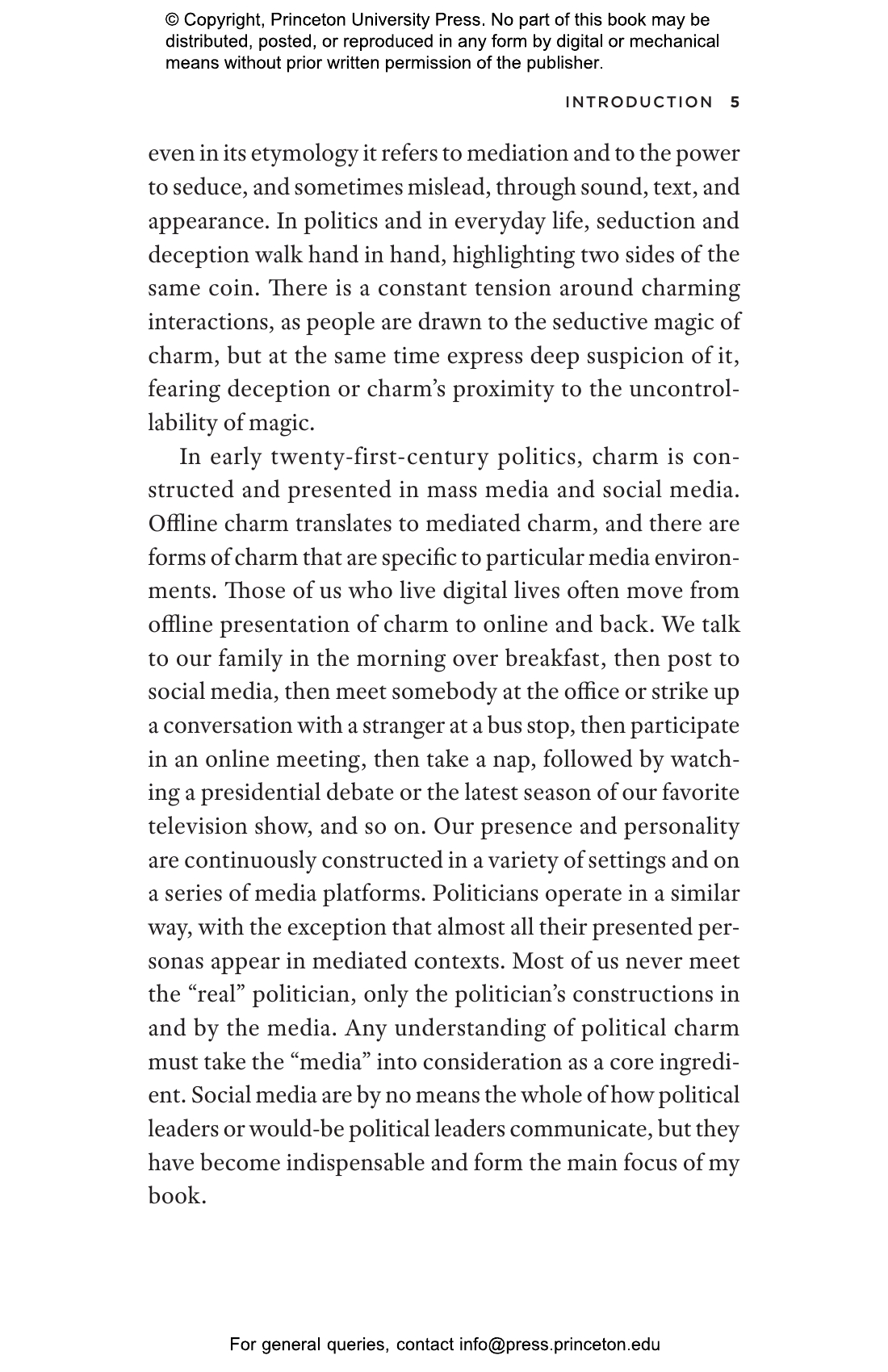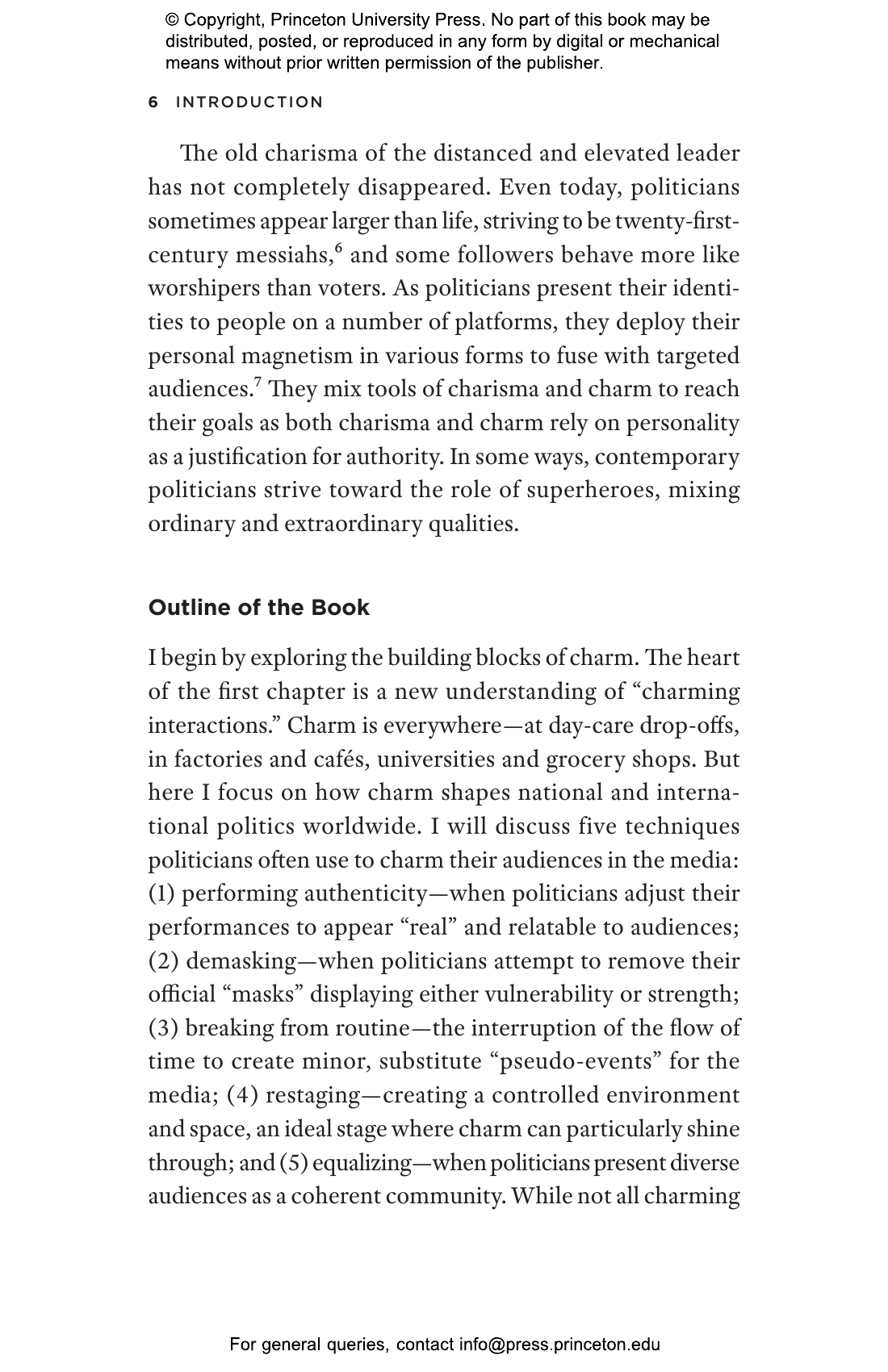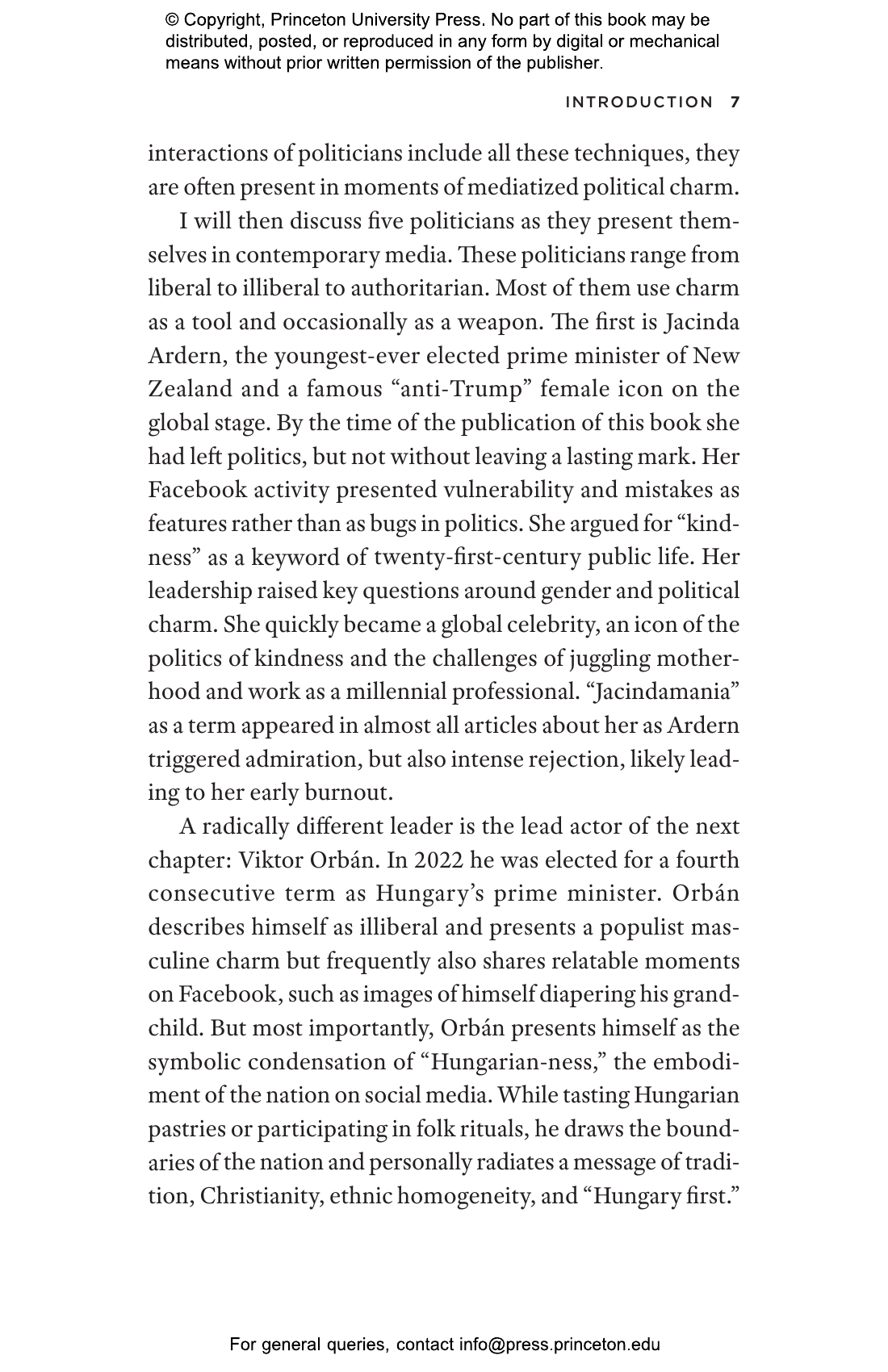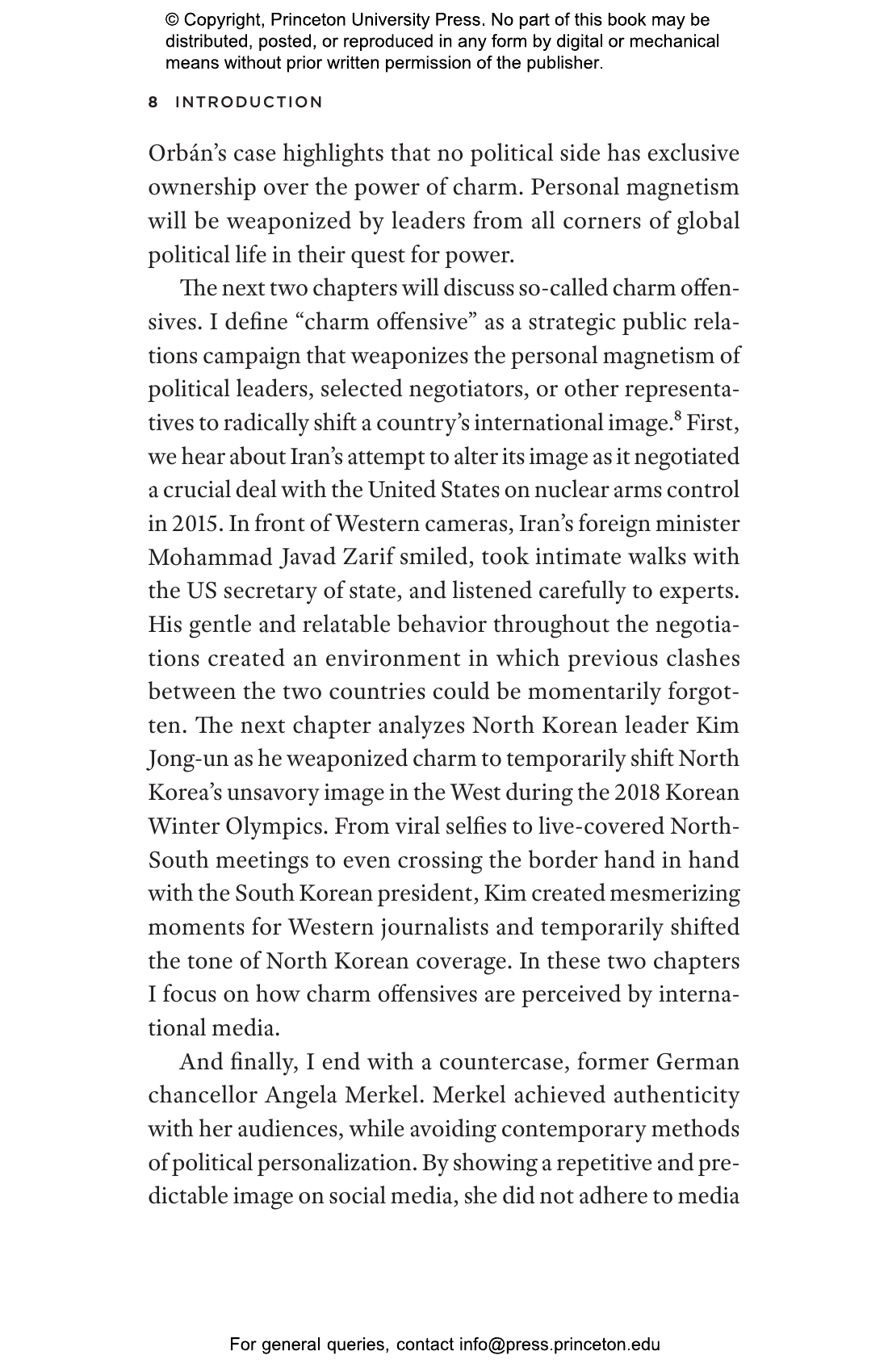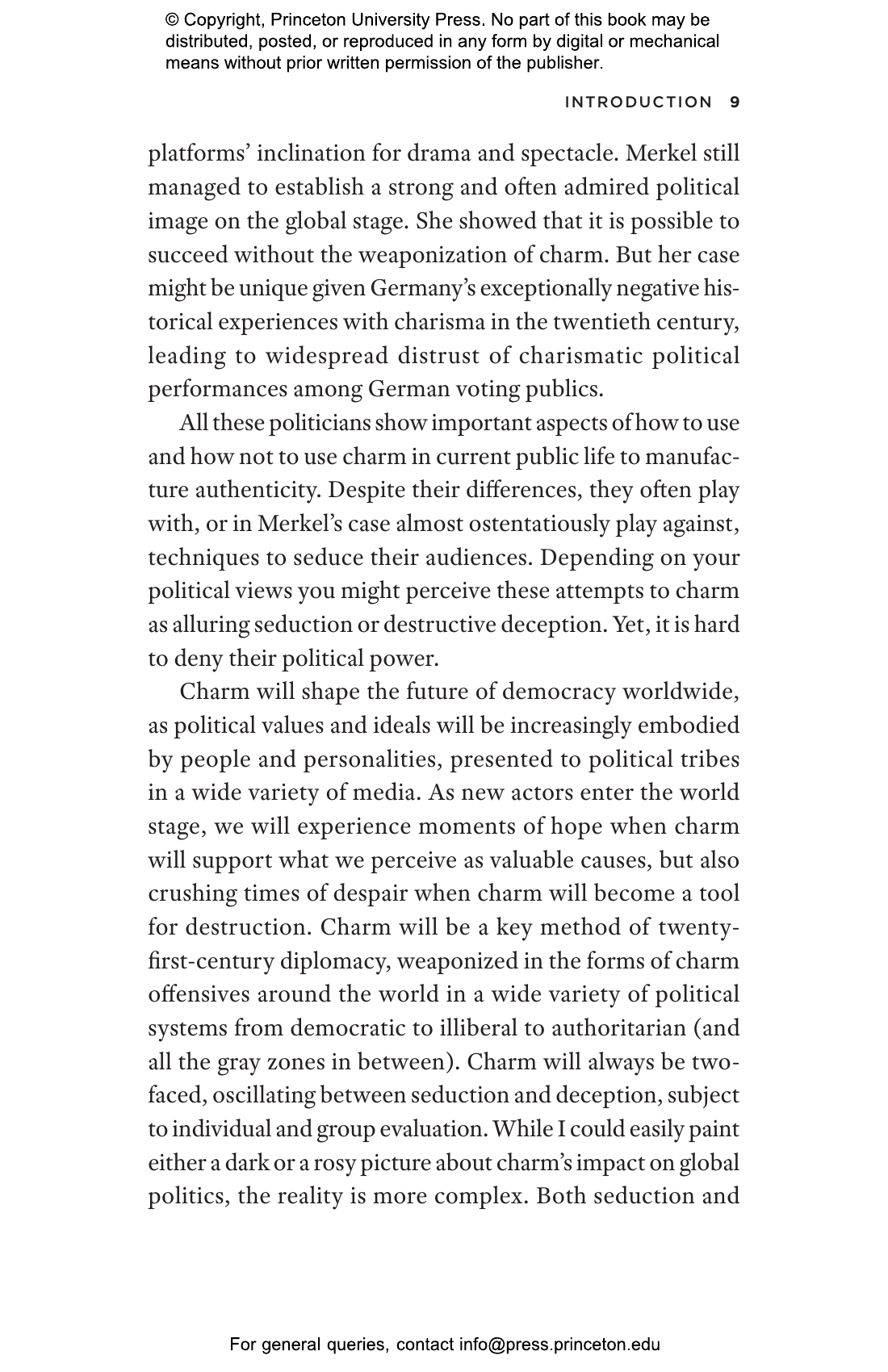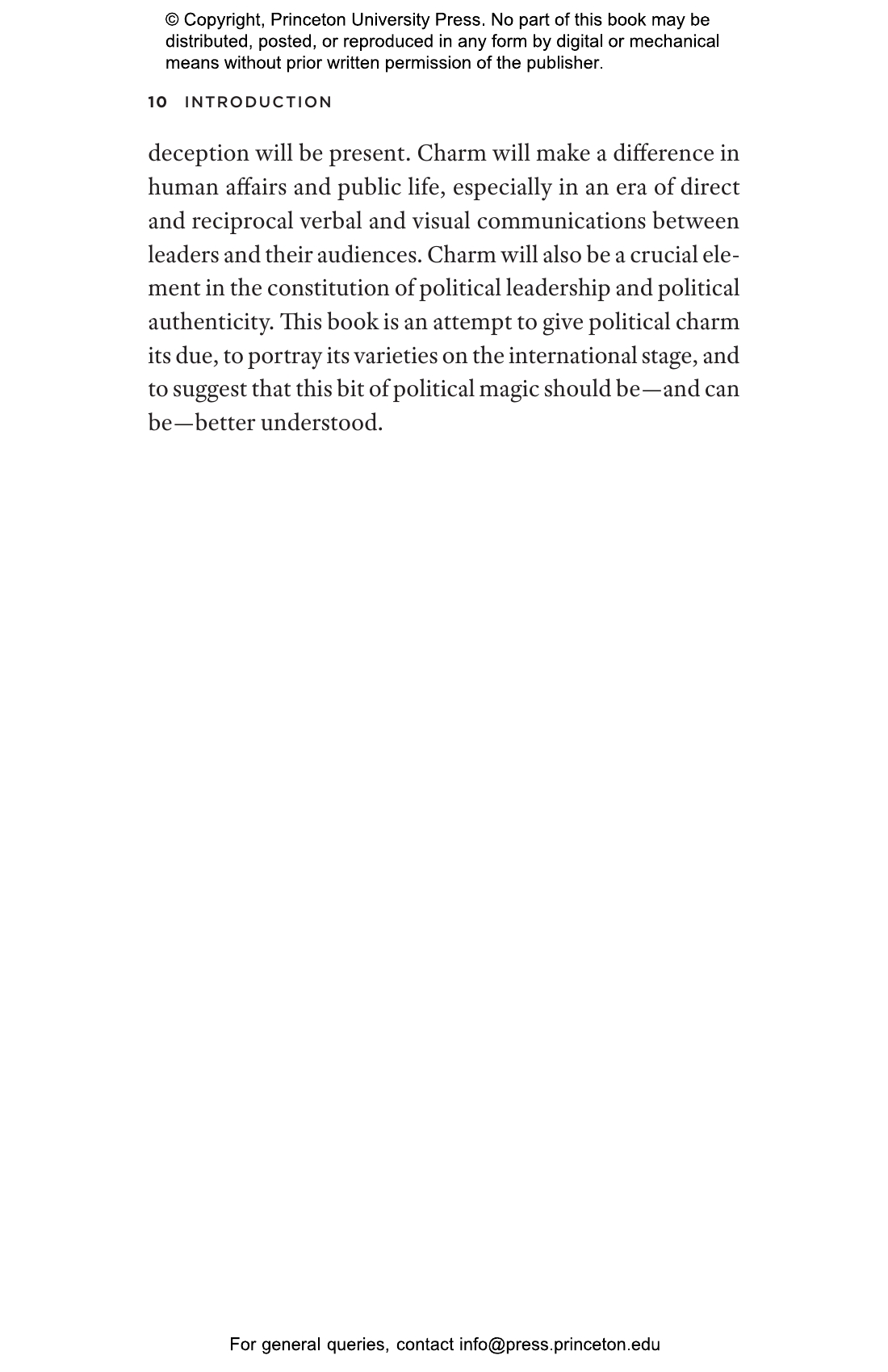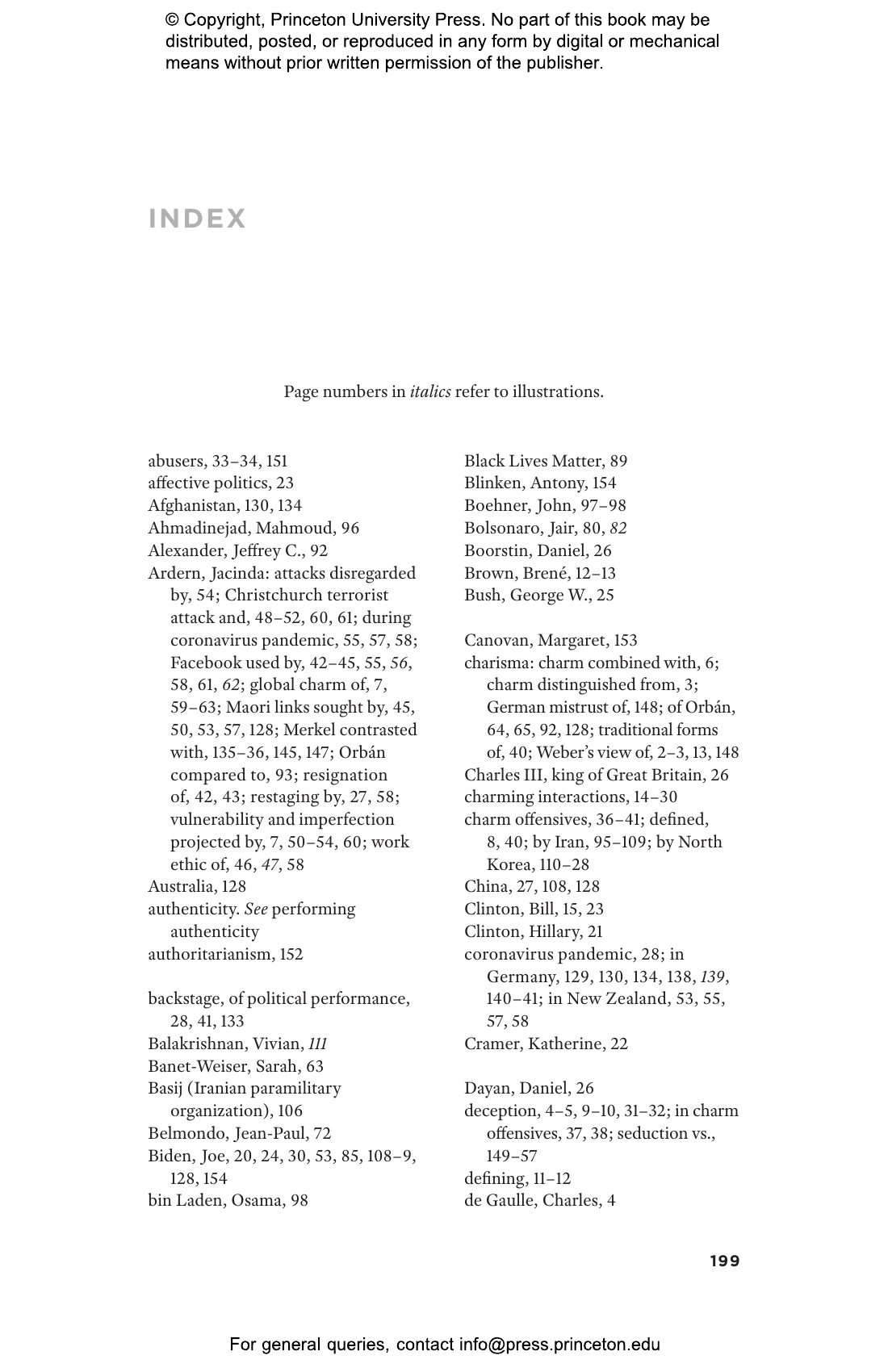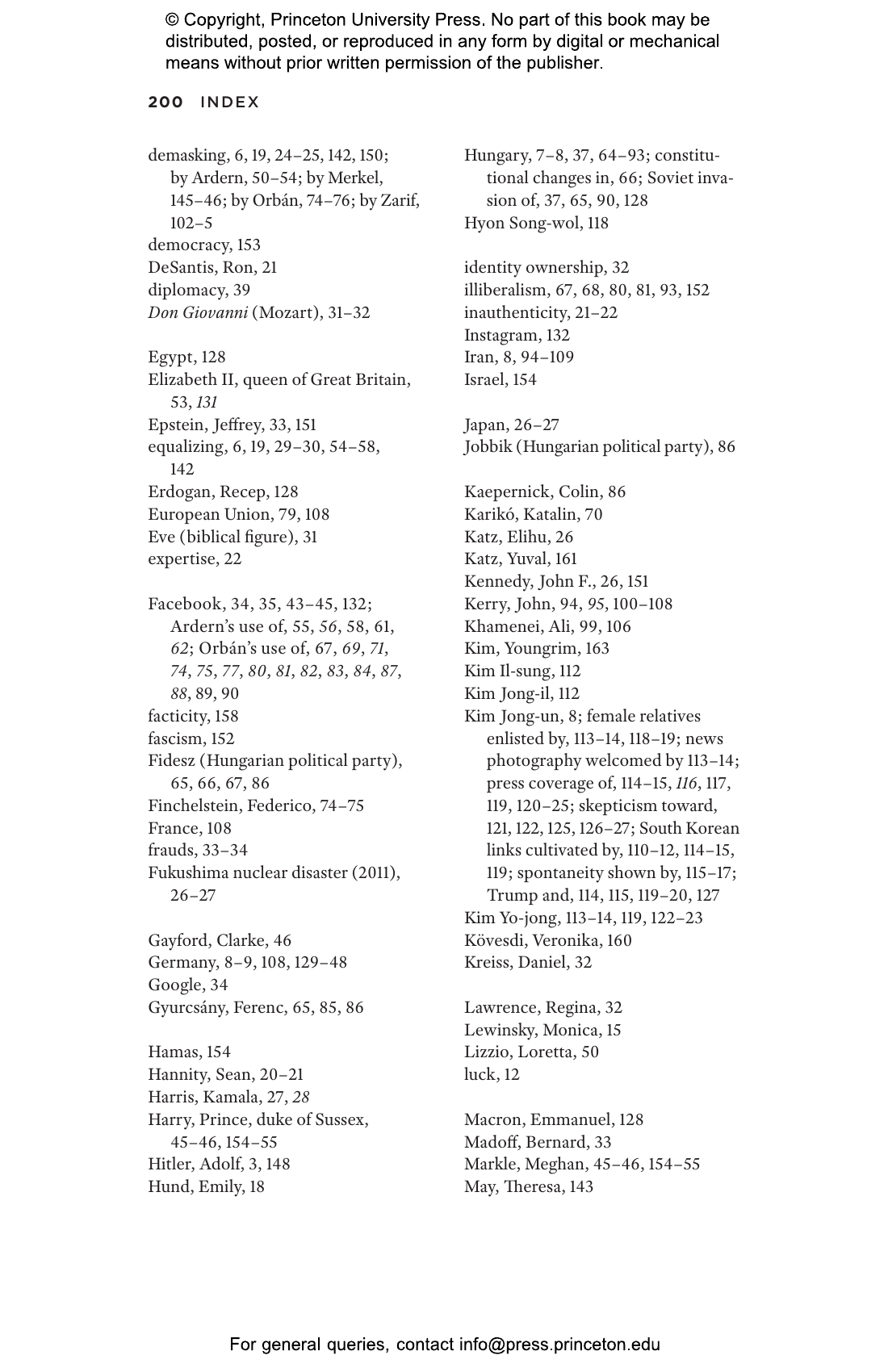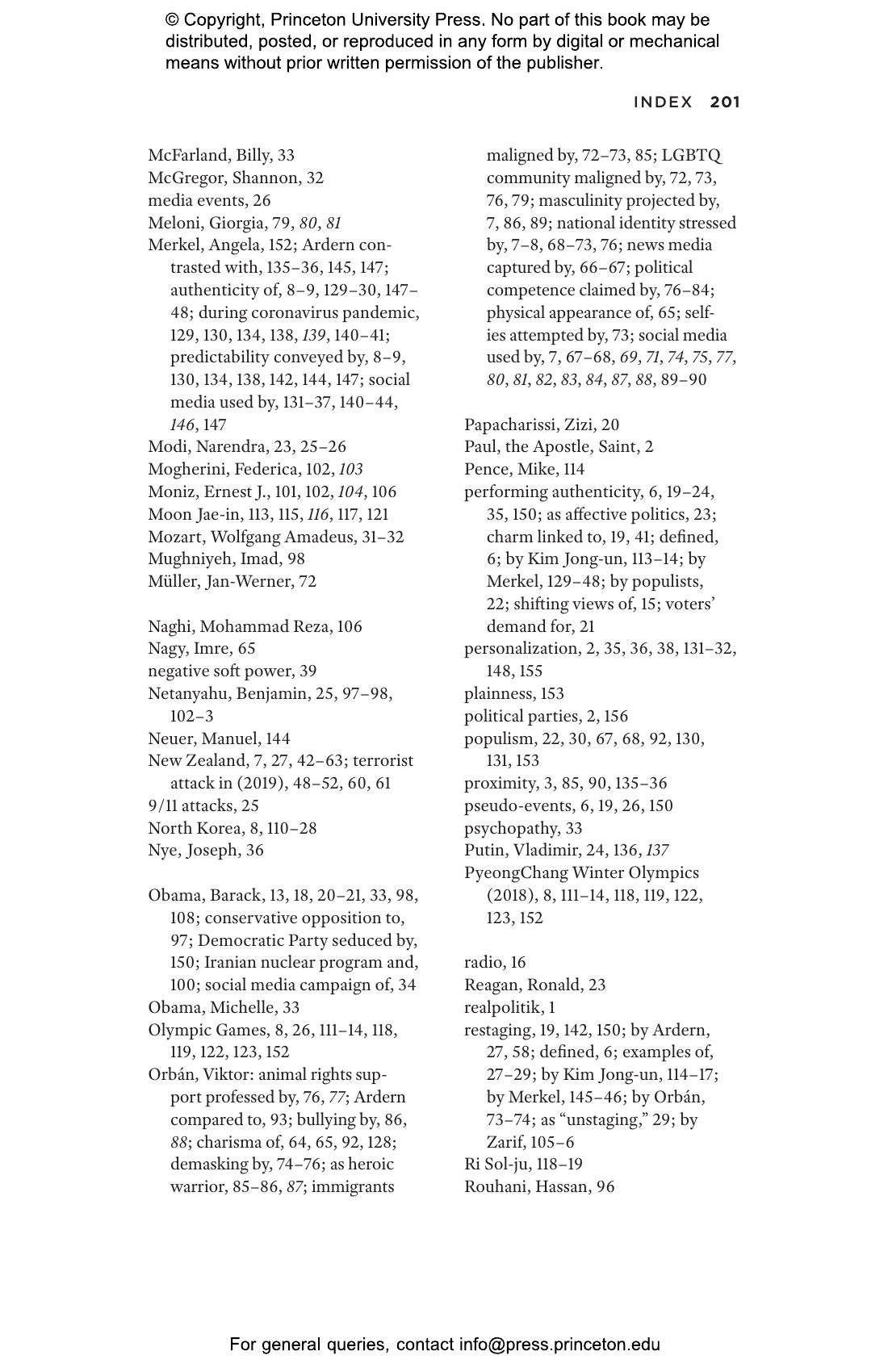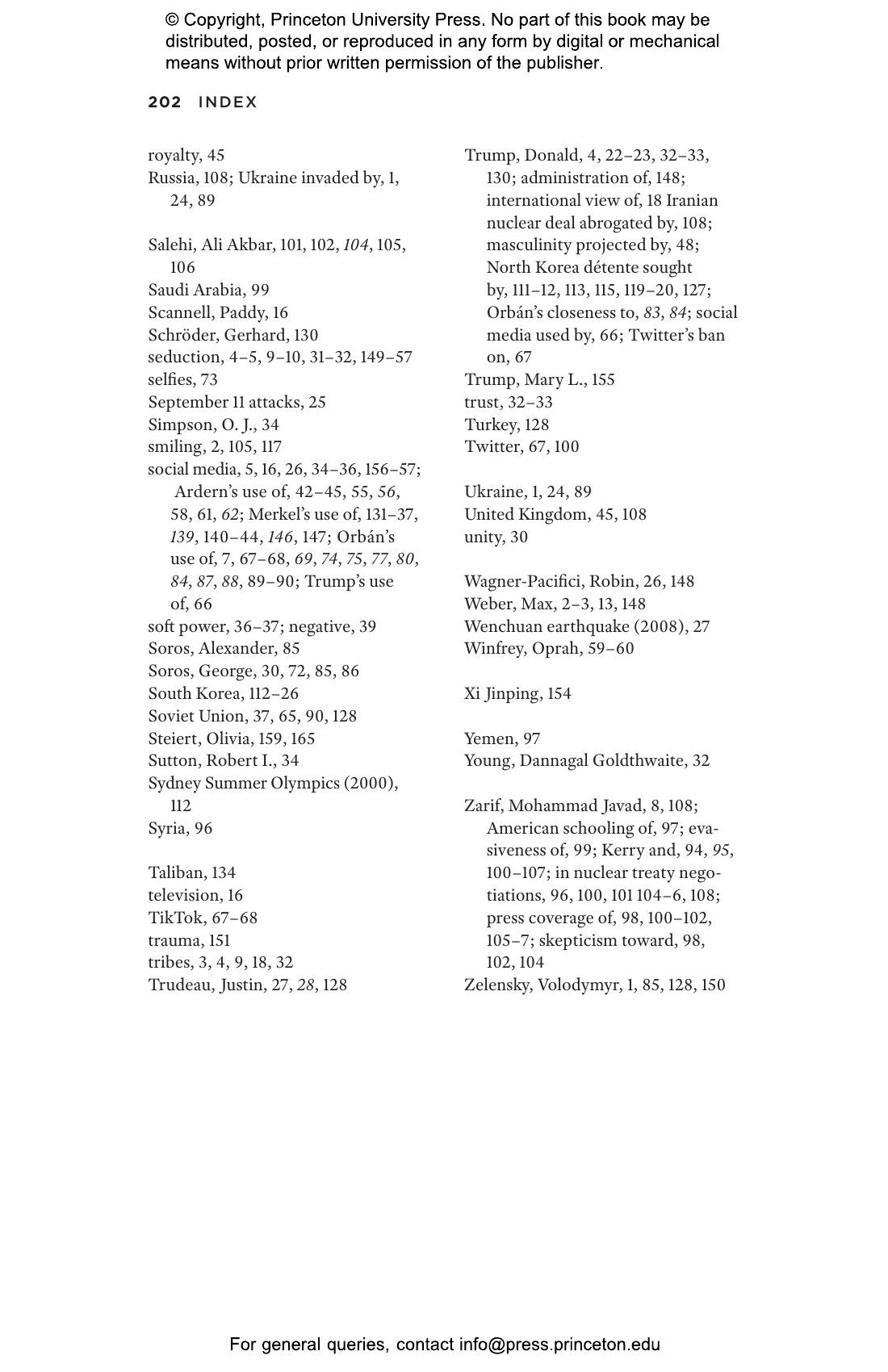Politics is a site of performance, and contemporary politicians often perform the role of a regular person—perhaps someone we would like to have a beer with. They win elections not because of the elevated rhetorical performances we often associate with charisma (“ask not what your country can do for you”), but because of something more ordinary and relatable. The everyday magic spell that politicians cast using mass and social media is what sociologist Julia Sonnevend calls “charm.” In this engaging and enlightening book, Sonnevend explores charm (and the related “charm offensive”) as a keyword of contemporary global politics. Successful political leaders deploy this form of personal magnetism—which relies on proximity to political tribes and manifests across a variety of media platforms—to appear authentic and accessible in their quest for power.
Sonnevend examines the mediated self-representations of a set of liberal, illiberal, and authoritarian political leaders, past and present: New Zealand’s Jacinda Ardern, Hungary’s Viktor Orbán, Iran’s Mohammad Javad Zarif, North Korea’s Kim Jong-un, and Germany’s Angela Merkel. She considers how charm (or the lack of it) is wielded as a political tool, and the ways charm is weaponized to shape the international image of a country, potentially influencing decisions about military aid, trade, and even tourism. Sonnevend argues that charm will shape the future of democracy worldwide, as political values will be increasingly embodied by mediated personalities. These figures will rise and fall, often fading into irrelevance; but if we do not understand charm’s political power, we cannot grasp today’s fragile political moment.
Awards and Recognition
- A New Yorker Best Book We've Read This Year
Julia Sonnevend is associate professor of sociology and communications at the New School for Social Research and the author of Stories Without Borders: The Berlin Wall and the Making of a Global Iconic Event.
"Sonnevend, a sociologist at the New School, offers some clues. . . . It has a lot to do with the way we see politicians in the Internet era. . . . Charm excites us and, when it works, seems undeniable. But, unlike charisma, it isn’t a gift from the gods. We shouldn’t put too much store in anything so terrestrial."—Joshua Rothman, New Yorker
"To understand modern politics, including the Kamala Harris and Donald Trump campaigns, distinguishing between two qualities—charisma and charm—is vital. They are different kinds of political magnetism. And thanks to the sociologist Julia Sonnevend, I’ll never conflate them again."—Conor Friedersdorf, The Atlantic
"Sonnevend explains how politicians like [Jacinda] Ardern woo voters by deploying an array of techniques, which are often turbo-charged by social media. . . . Sonnevend guides the reader through a range of examples that can be jarring."—Tom F. Wright, Bloomberg
"Pertinent and well researched, this book will be of particular interest to those with an interest in global politics. . . . Timely, illuminating reading."—Kirkus
"Julia Sonnevend’s timely and engaging book on charm provides a much-needed update to the idea that charisma fuels the politics of personality. In the age of social media, it is not distance and otherworldliness—staples of charisma—but authenticity and accessibility that are prized. I have been waiting for a book like this, and recommend it highly."—Ruth Ben-Ghiat, author of Strongmen: Mussolini to the Present
“This excellent book offers a very timely study of the political uses and abuses of charm in the era of social media. Julia Sonnevend provides a rigorous analysis of the tools used by democratic and nondemocratic leaders alike to seduce and manipulate their political bases.”—Sergei Guriev, coauthor of Spin Dictators: The Changing Face of Tyranny in the 21st Century
“The idea of charm has never been more pertinent and divisive in the public sphere. Sonnevend lures us into a compelling and original exploration of the meaning of charm in contemporary politics. Through careful comparison and deep study, she invites us to ask: Is charm a panacea or a trap?”—Zizi Papacharissi, author of After Democracy: Imagining Our Political Future
“How does ‘charm’ operate in the mediated worlds of politics and international affairs? Julia Sonnevend brings her topic into analytic focus through engaging accounts of the media strategies of diverse political figures, revealing the communicative processes that transform an elusive personal quality into a consequential social fact.”—Paul DiMaggio, New York University



